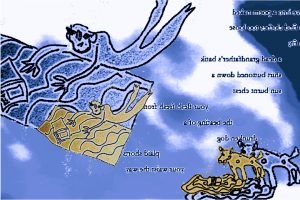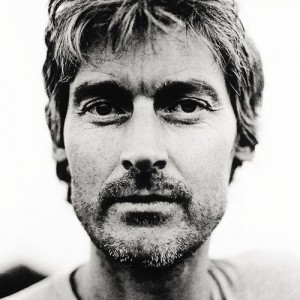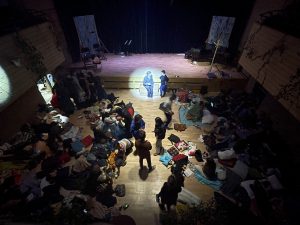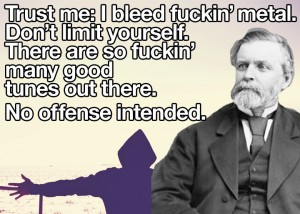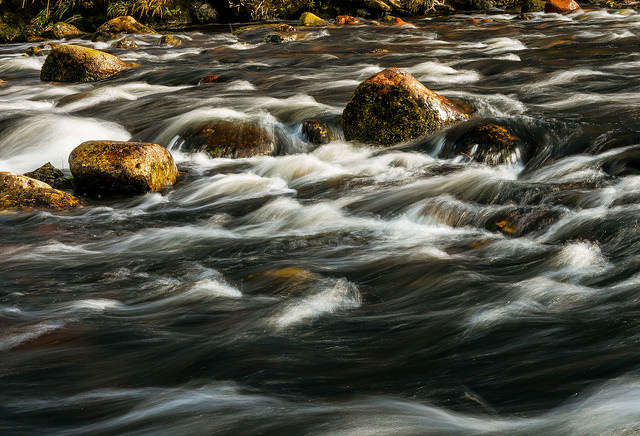
Dart and other meetings
by Alissa Machin | March 30, 2017
A whimsical flick through the Faber and Faber Poetry Diary 2013 led to an encounter with Alice Oswald’s ‘Woods etc’. I remember reading that poem aloud several weeks later, during a lunchtime of poetry in the school library, and feeling the nerves of public speaking fizzle into the goosebumps that only a rare poem can provoke. The same invisible tingling buzzed through the room when Oswald gave a recital at Keble in Hilary Term of 2015.
Experiencing Oswald’s poetry, first- or second-hand, is to linger on “the threshold of listening” around which her words hang. This is a writer that demands “lend me your ears!” and presupposes an attention to sound. Reading or hearing the various voices in her poems is more than just handing over free will in the hope of absorbing the trickling magic of the lines. In one particular collection, Dart, which won the T.S Eliot Prize for Poetry in 2002, Oswald gathers together the “loose tacks of sound” left on her voice recorder after spending two years interviewing the people who live and work on the River Dart in Devonshire. There is a voice that recurs across the neat groupings and temporal markers; it seems to say that there is always a potential for more, of which the unspoken and untapped element of language is a reminder. In “Woods etc”, the starting ripple of this thought-flow, an image emerges of “my throat, the little mercury line / that regulates my speech began to fall / rapidly the endless length of my spine”. In this respect, words have a will of their own; they can enter into free fall outside the parameters of a corpus, human or otherwise.
Allowing language to perform its shadow dance and embracing its power to enhance our daily perceptions is a primary mode of most literary talents, and Oswald’s Dart is illustrative of such a skill. Her verses fall like the stones she writes about, dropped softly yet deliberately. She charts a chronicle of a river and its people, using nature’s great moving mirror to reflect the myriad meetings that occur throughout life. Flashes of genius will catch even the most discerning reader off guard, just as Oswald’s characters are often dazzled by their fished-out discoveries. At times it feels as though they are incubating in silence, preparing for their next masked metamorphosis.
It is in the midst of this drama of self-awareness, “falling back on appropriate words / turning the loneliness in all directions”, that an unveiling occurs; the unmasking of a transformation. The river bends become meanderings of thought and their point of confluence is resolutely existential. Here, it is tempting to call up Ted Hughes. Oswald is seen as an heir to Hughes but it is important to show how she writes differently, as this is arguably what makes her a great poet. Her voice is not lost amongst the patriarchal tradition of nature poets but achieves something that is at once ancient and modern, formless and genderless. Just as Hughes’ “Wodwo” has “no strings / fastening me to anything”, so too does Oswald’s “eel watcher” by the bridge, as he slips in and out of forms:
“Who’s voice is this who’s talking in my larynx…
who’s talking in my lights-out where I pull to
under the bent body of an echo are these your
fingers in my roof are these your splashes”
While Oswald’s work is resonant of Hughes’, it is perhaps more fruitful to see their work in parallel. What Oswald ultimately moves towards, through digging deep into the soils of nature, are the wriggling existential questions that plague our minds.
In writing ‘Quarrel’ in response to ‘Dart’, I have this tension between sight and self in mind, as well as this poet’s idiosyncratic awareness of sound. There is a primary association between “dart” and “quarrel” as nouns; the latter historically meaning arrow or crossbow. In this sense, I suppose, I am tapping into the way objects can lose and regain their links to certain actions. Just as the river Dart has drifted from its original roots as old Devonian for “oak” and has become “a jabber of pidgin-river”, so too has “quarrel” got a fork in its etymological path.
I have also used a Cupid metaphor, but it pales in the face of Oswald’s Memorial, a sizzling soundscape recreation of the Iliad. Aside from the imagined meeting between former lovers and the question of reconciliation, I am trying to convey the gut-wrenching dart of emotion that lurches in your stomach when thinking of certain people who have crossed our paths. Of love that has now been displaced by time and the infinite tenderness you feel in spite of yourself for moments elapsed while you were together. That faded figure you refuse to fully shake from the anchor of your memory. And another, whose name will always conjure up that mad reptilian rapture or the shadow of it, tainted by an aftertaste of what was not.
Quarrel
Brazen student, wide-eyed, true:
she darts her gaze right back at you,
settles on the bull’s eye of your pupils.
Hair flies, shorter than it’s ever been, she pedals hard and committedly
down Broad Street, which bows:
bows its pavements in anticipation, admittedly,
of an eventual embrace
Tears furrow
And flow, droplets of a storm that mottle
down either side of each eye:
And I see you then as if I’m a hundred and you’re ten
And hold you then as if it is I who has been the shipwrecked one!
Such is the power of language: to bring us back to those moments and heal the wounds of past “I love”s. And yet the eye – or ‘I’ – of hindsight isn’t always enough; we need to engage with a fuller sensory balm, one that infuses a remedial tune into our lives of flashing urban excess. Come back to the depths of Devon and let the river run its course; let your life flow like the time that courses through its veins. This is what Dart seems to urge: a return to “the real Dart”, if there is one. There is an eternal internal combat; “in the water it’s another matter, we’re just shells and arms, keeping ourselves in a fluid relation with the danger.” We’re all just treading water, really.
And so we return to that “little mercury line”, the gravitational sway that seems to alternately centre and decentre Oswald’s language in a universe wrought with the iron echo of Anglo-Saxon. Her latest collection, Falling Awake, is perhaps the most perfect approximation of this contradictory (dis)orientation. How can this rootless clamour of identities be resolved? “Quarrel” is, maybe, an attempt at this impossible reconciliation of selves. A stone’s throw from a whim and you arrive at the water’s edge of a poem; you’re back for another look in the mirror. “This is me, anonymous, water’s soliloquy” speaks a voice from the cave at the end of Dart; the protean hum “of things not yet actual”. Perhaps we must look forwards instead, moving with the river, the fluid will that drives us forward in spite of ourselves.
Photo credit: flickr
